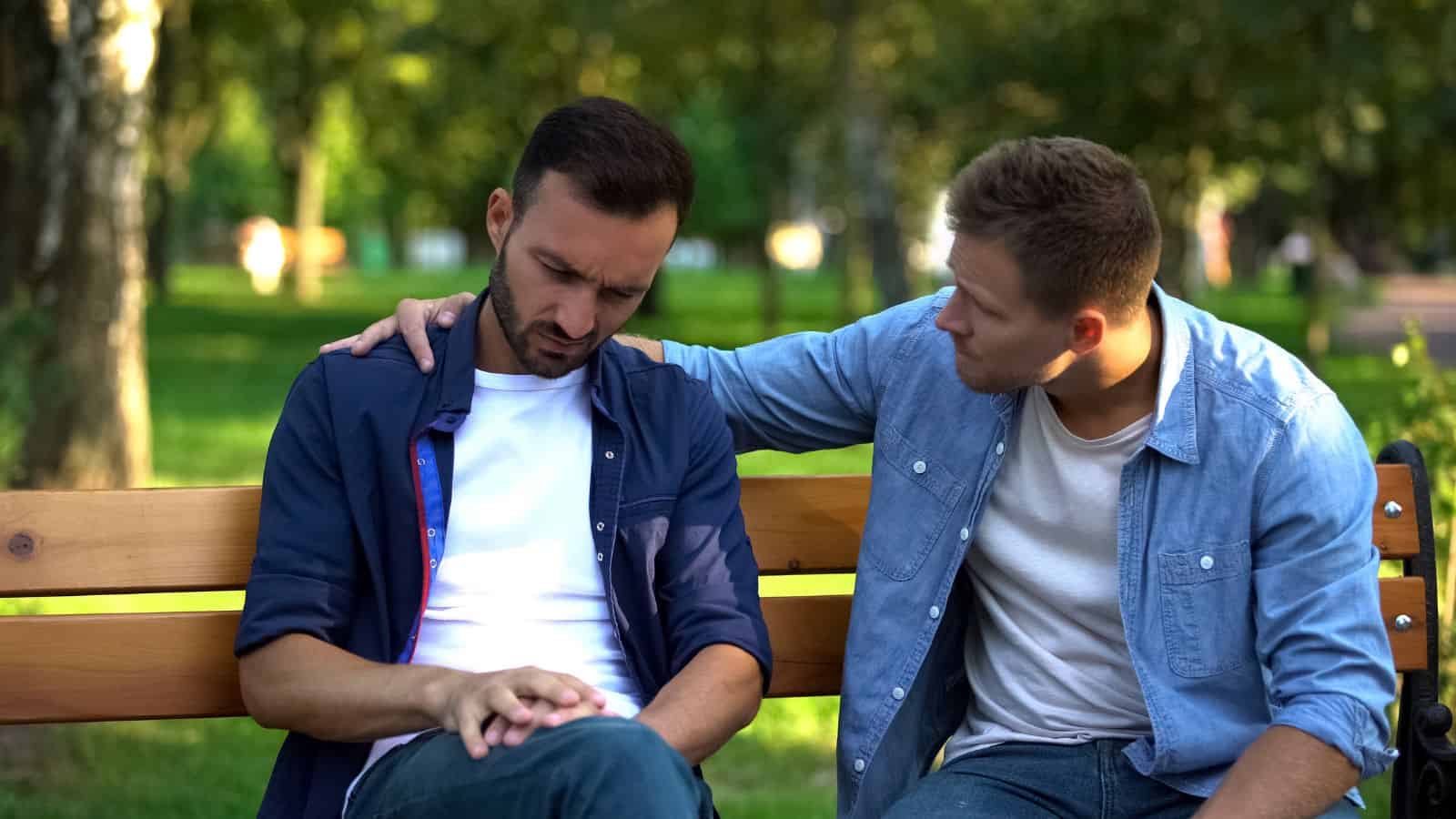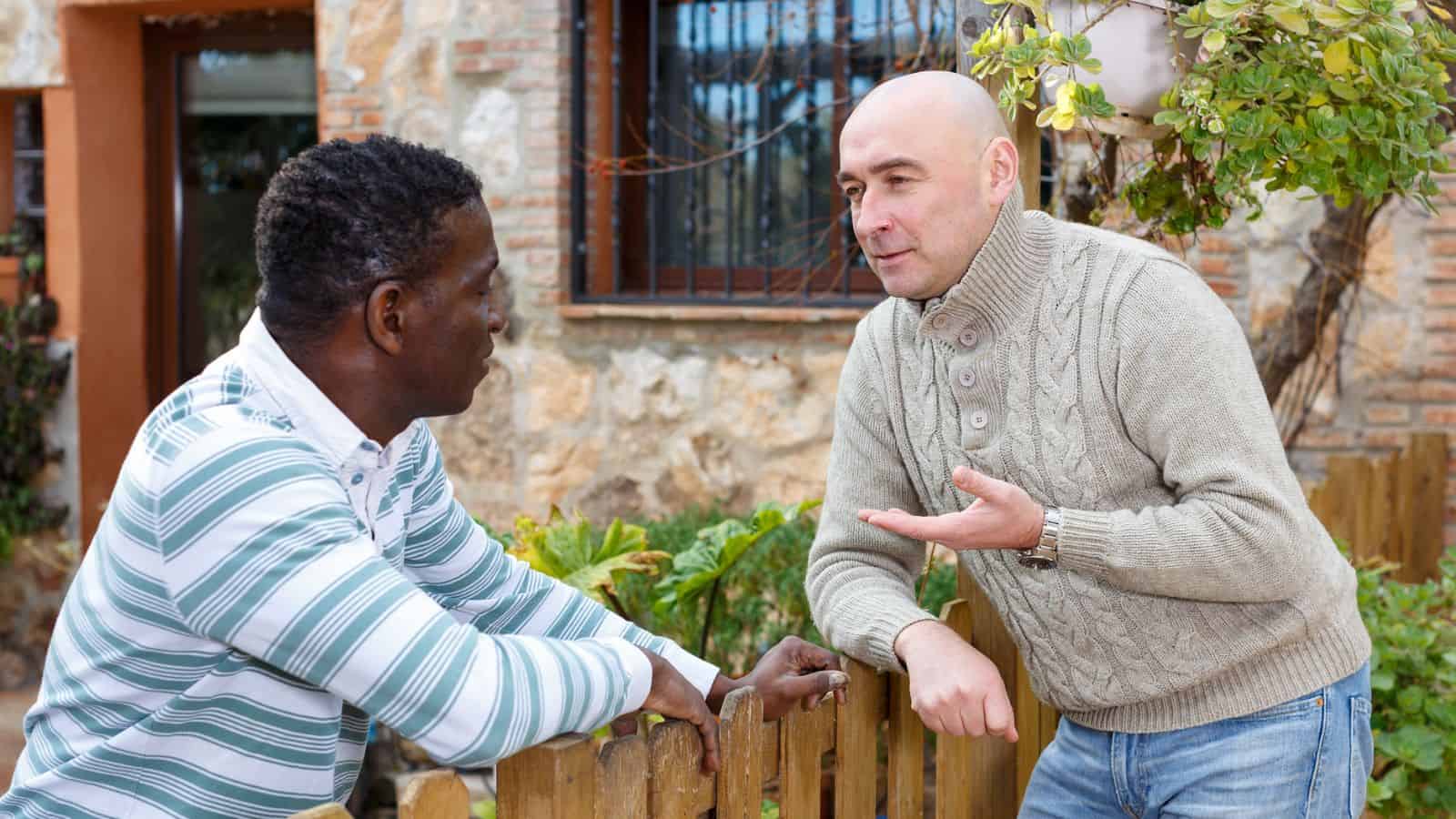When a friend reaches out in times of hardship, choosing the right words can provide comfort and support. However, some phrases, even when well-intentioned, can cause more harm than good, so you need to be careful. So, to help you prevent yourself from becoming discouraging rather than helpful, this list covers many phrases you should never say to a friend in need.
I Know Exactly How You Feel

Though it may seem empathetic, saying, “I know exactly how you feel,” can minimize your friend’s unique experience. As Ted.com points out, every person’s journey through hardship is personal, and assuming their emotions mirror yours can make them feel unheard. Instead, let them share their feelings without assuming you understand everything they’re going through, and they’ll appreciate your support much more.
Everything Happens for a Reason

While it might not seem bad, this phrase can actually feel dismissive and cliche, suggesting your friend’s pain is part of some larger plan they should just accept. In moments of distress, your friend is likely seeking comfort, not explanations, so rather than assigning a reason for their struggles, offer a listening ear and validation of their feelings.
Just Be Positive

Encouraging someone to “just be positive” can come across as dismissive of your friend’s real emotions while also implying that their feelings are a choice rather than a valid response to a difficult situation. Acknowledge their feelings instead and offer your support without pushing them to put on a brave face, which they’ll no doubt develop over time on their own.
It Could Be Worse

We Brits love to underplay things, but it’s important to not go too far by saying things like “It could be worse.” Comparing your friend’s problems to other, supposedly worse scenarios can make them feel guilty or invalidated. Remember: pain is not a competition, and what they’re experiencing is real to them.
At Least You Still Have…

It’s really not helpful to point out to your friend that they still have certain things, such as family, money, or a home, as this can come across as minimizing their loss or difficulty. It’s natural to want to highlight the positive, but doing so can make them feel that their struggles aren’t being acknowledged. Focus on providing support rather than highlighting what remains.
You Should Just…

One of the most common unhelpful phrases you probably use when trying to comfort a friend is “You should just…,” which comes across as unsolicited advice that might feel overwhelming and unhelpful. Your friend may not be seeking solutions but rather someone to listen. Instead of jumping to fix their problems, ask how you can best support them and let them guide the conversation.
You’ll Get Over It

In another act of British bluntness, some people tell their friends that “they’ll get over it.” Come on–this is just dismissive of their current pain. Recovery and healing are personal processes that don’t happen on a set timeline, so a more supportive approach would be to acknowledge the difficulty of their situation and assure them that it’s okay to take their time.
Other People Have It Worse

Similarly to saying, “It could be worse,” comparing your friend’s struggles to those of others minimizes their pain and can make them feel their emotions aren’t justified. Each person’s experiences are valid in their own right, and suggesting that others have it worse doesn’t provide comfort.
Time Heals All Wounds

While time does play a role in healing, saying this can seem like you’re brushing off their immediate pain. Your friend might not find solace in the idea of waiting for things to get better. Instead, acknowledge their current feelings and remind them that it’s okay to feel hurt now.
You’re Strong, You’ll Be Fine

There’s no denying that acknowledging someone’s strength can be uplifting, but it can also pressure them to hide their struggles. They may feel like they have to live up to being strong and not show vulnerability, making it better to simply let them know it’s okay to not be okay, and that you’re there for them regardless.
Look on the Bright Side

Even though you might naturally say it when comforting a friend, saying “Look on the bright side” really isn’t helpful. Like many phrases on this list, it invalidates their current feelings, and it may feel like you’re asking them to ignore the negative aspects of their situation. So, let the positive attitude go for a minute and just let them express what they’re going through.
This Too Shall Pass

Although meant to provide comfort, this phrase can come off as dismissive and outdated. Your friend may need acknowledgment of their present pain rather than a reminder that things will eventually improve. It’s often more helpful to offer your presence and let them know they don’t have to go through it alone.
You’re Overreacting

You really shouldn’t tell someone that they’re overreacting, as not only can this make them feel misunderstood and alone in their struggles, but it could also turn them angry. Everyone reacts differently to situations, and what might seem minor to one person can be overwhelming to another.
Cheer Up

It’s very tempting to encourage someone to cheer up, especially when you’re cheerful yourself, but doing so will just feel dismissive from your friend’s perspective. It implies that their feelings are easily changed or not worth exploring, which just isn’t the case. Be present with them in their emotions and offer comfort in the form of understanding, and they’ll appreciate you so much more.
You Should Be Grateful

Another phrase you should never say to a friend in need is “You should be grateful.” Gratitude is personal, and during tough times, it may not be at the forefront of your friend’s mind, so a better approach is to acknowledge their feelings and provide space for them to express themselves and find gratitude rather than forcing it.
I Told You So

It should really be pretty obvious that saying “I told you so” can come off as judgmental and unkind, especially when your friend is already feeling vulnerable. It shifts the focus from their feelings to past mistakes and can create distance rather than support, so if this phrase comes to your mind, keep it to yourself.
It’s Not That Big of a Deal

Finally, it’s never kind to dismiss someone’s struggles by saying it’s not a big deal, which can make them feel belittled. Even though it might seem small to you, it’s clearly significant to them–otherwise, they wouldn’t be seeking your support. It’s important to recognize that each person’s experiences are their own and to offer support without minimizing their feelings or situation.

